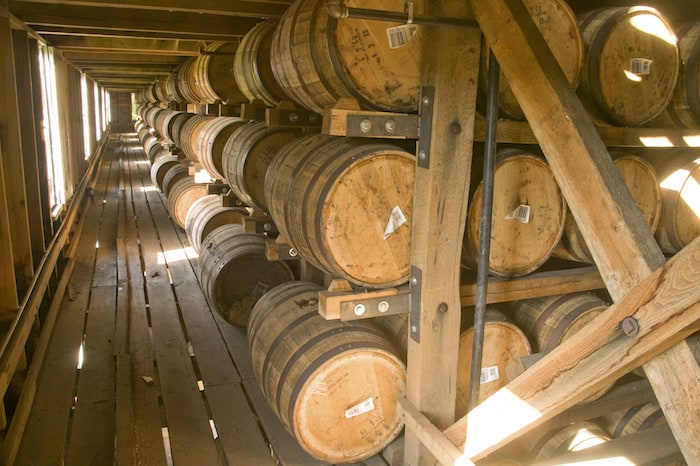Every drop of whiskey is precious—especially if selling whiskey is how you make your living. So there must be a pretty compelling reason that distillers put up with the angels’ share – that portion of whiskey that mysteriously vanishes from even the most tightly sealed barrels. The name comes from a tongue-in-cheek belief that those “greedy angels” must be to blame for the diminishing level of barrels whose bungs have never been pulled.
From a less theological perspective, however, we know that the reason casks contents go down over time isn’t supernatural beings with a taste for whiskey. It’s because of evaporation.

Even the most carefully constructed, leak-free barrel invites evaporation, because the staves themselves are made of wood, which is porous—known to anybody who’s ever set foot in a rickhouse or dunnage house and smelled the amazing aroma of evaporating whiskey.
Of course, that porosity is an essential component of the development of whiskey’s flavor and color. Over time, the spirit soaks into the oak like a sponge, filling up its tiny capillaries and extracting compounds from the wood that give the distillate a rich amber color and all those sweet, spicy, oaky flavors its known for. If oak staves were as smooth and inert as stainless steel, whiskey would be a very different drink.
The total annual loss from a given barrel can range widely, anywhere from 1% all the way to 15% of total volume, depending on the size of the cask and the weather. Hot, dry climates tend to encourage more evaporation, while cool, humid climates keep evaporation down.
That’s a lot of product to lose each year. The angels’ share has been the impetus for many experiments in alternate aging regimes, from high-tech infusion systems to simple oak inserts, but so far, nobody’s hit on a solution that matches the unimpeachable flavor profile of plain old barrels. It even seems that evaporation itself may play a major role in maturation.
So distillers (and their accountants) continue to bemoan the loss of a significant portion of their aging stock each year. It’s just a cost of doing business, and one of the reasons that old whiskey is so expensive. For now, at least, the angels’ share is the price we pay for the color and flavor that comes from oak.



